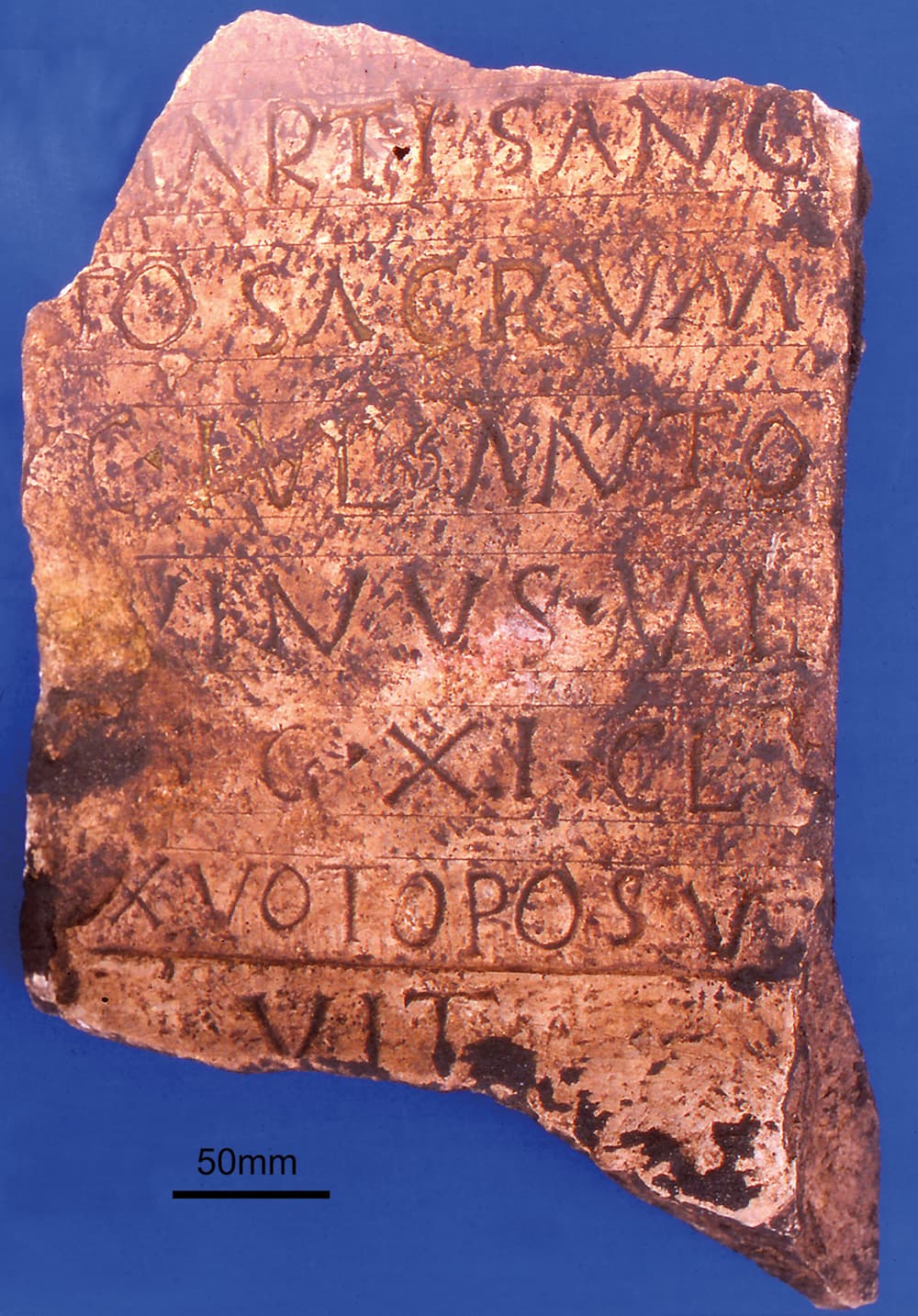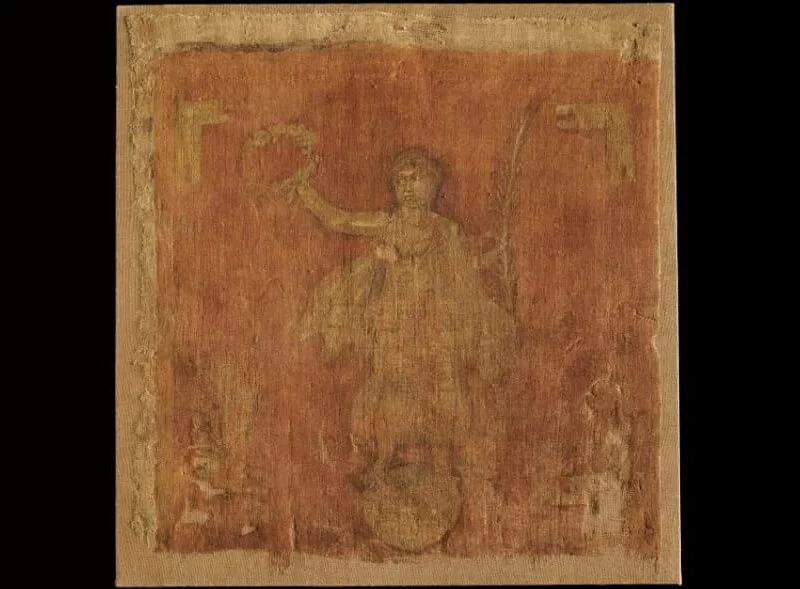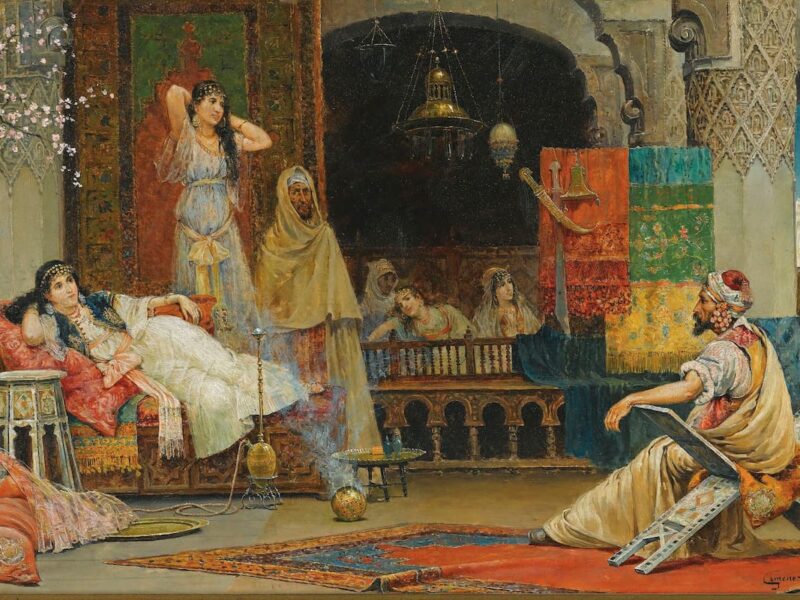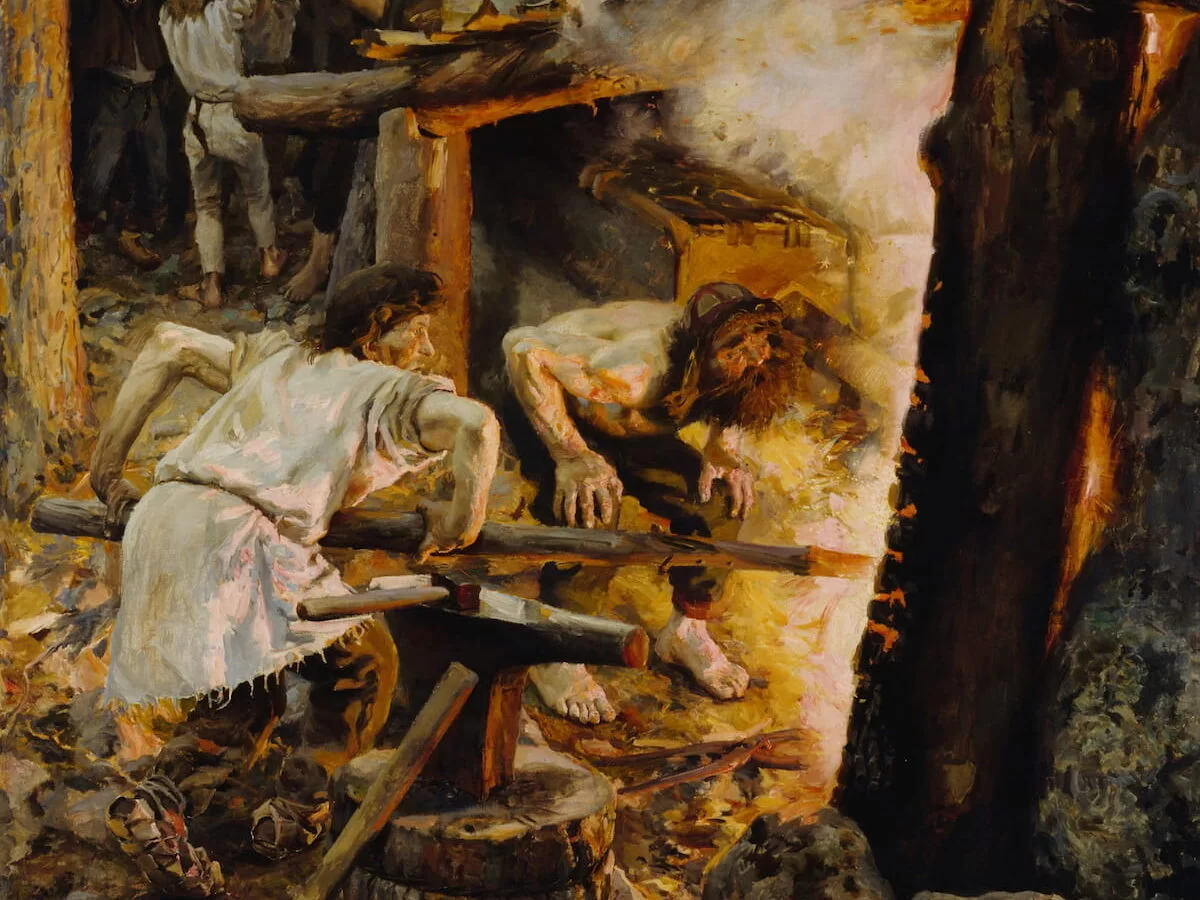A Roman altar dedicated to Mars, found in Marton, Lincolnshire, has revealed a fascinating connection to a soldier of the XI Claudia Legion of the Roman Empire. The altar, which was discovered in a fragmented state in the yard of St. Margaret of Antioch Church, apparently during restoration work, has generated archaeological interest and debate about its origin and significance. The limestone object bears an inscription linking it to a soldier named Gaius Iulius Antoninus, who served in this legion, which was stationed at various points throughout the Roman Empire, but primarily in the lower Danube region.
The altar was discovered in May 2001 by Pat Foster, a researcher from the Department of Archaeology at the University of Sheffield. During restoration work at St. Margaret of Antioch Church, Foster noticed an inscription on a limestone block among construction debris. The piece was later taken to a local museum by a metal detectorist who claimed to have found it in a nearby field. However, subsequent investigation suggests the piece likely came from reused materials from the nearby Roman town of Segelocum, now known as Littleborough, located on the banks of the River Trent.
It is likely that the altar had been integrated into the church’s internal structure, possibly in a position where it was not visible, which would explain why it was not discovered until the restoration work. Despite superficial weather damage, its good state of preservation suggests it was protected from the elements, reinforcing the theory that it was located inside the church before being removed and discarded during construction.

The inscription on the altar is dedicated to Mars, the god of war, and mentions the soldier Gaius Iulius Antoninus, a member of the XI Claudia Legion, who, according to the inscription, made an offering to the god in fulfillment of a vow: Dedicated to the god Mars, Gaius Julius Antoninus, a soldier of the Eleventh Claudia Legion, placed (this) according to (his) vow.
Although this legion is well known for its presence in the lower Danube region, its connection to Britain has been a matter of debate, as there are no firm records of this particular legion being stationed on the island. This fact has led some experts to speculate about the altar’s origin and the circumstances that brought it to Britain.
The altar was auctioned in 2011, and its current whereabouts are unknown, complicating further scientific investigation. Experts have suggested that a more detailed analysis of the stone, especially by studying its microfossil content, could help determine its geological origin and confirm whether it comes from the lower Danube region, where the XI Claudia Legion was stationed for most of its history.

The XI Claudia Legion has a long and notable history in the Roman army. It was founded by Julius Caesar in 58 B.C. and fought in Gaul before participating in the civil wars that followed his assassination. Later, the legion was transferred to various regions of the Empire, including the province of Moesia on the lower Danube, where it remained stationed for several centuries.
According to researchers, it is not surprising that the name appears in other parts of the Empire. A tombstone, now at the University of Michigan, originating from Puzzuoli (Puteoli) in Italy, commemorates a veteran of the same name from the Praetorian fleet of Misenum. In Egypt, a decurion named C. Julius Antoninus placed a Greek inscription in Luxor commemorating his restoration of the Serapeum, and the name, again in Greek, appears in the early second century at Oenoanda in Lycia, present-day southwestern Turkey. Further west, it appears in Augusta Vindelicorum in Raetia, now Augsburg in Germany.
Since the altar found in Lincolnshire cannot be dated, it is also impossible to know if all these C. Julius Antoninuses were the same person, dedicating inscriptions at each place in the empire where he was stationed. Overall, it seems more likely that C. Julius Antoninus came from the eastern part of the Empire and was attached to the governance of the British province, but there remains the slight possibility that he successfully traveled across more than half of the Empire to return to his origin, where his vow to dedicate an altar to Mars could have been duly fulfilled, conclude the researchers.
SOURCES
Buckland PC, Dolby MJ. An Altar from Marton, Lincolnshire, and a Soldier of Leg. XI Claudia in Britain. Britannia. Published online 2024:1-8. doi:10.1017/S0068113X24000291
Discover more from LBV Magazine English Edition
Subscribe to get the latest posts sent to your email.




















